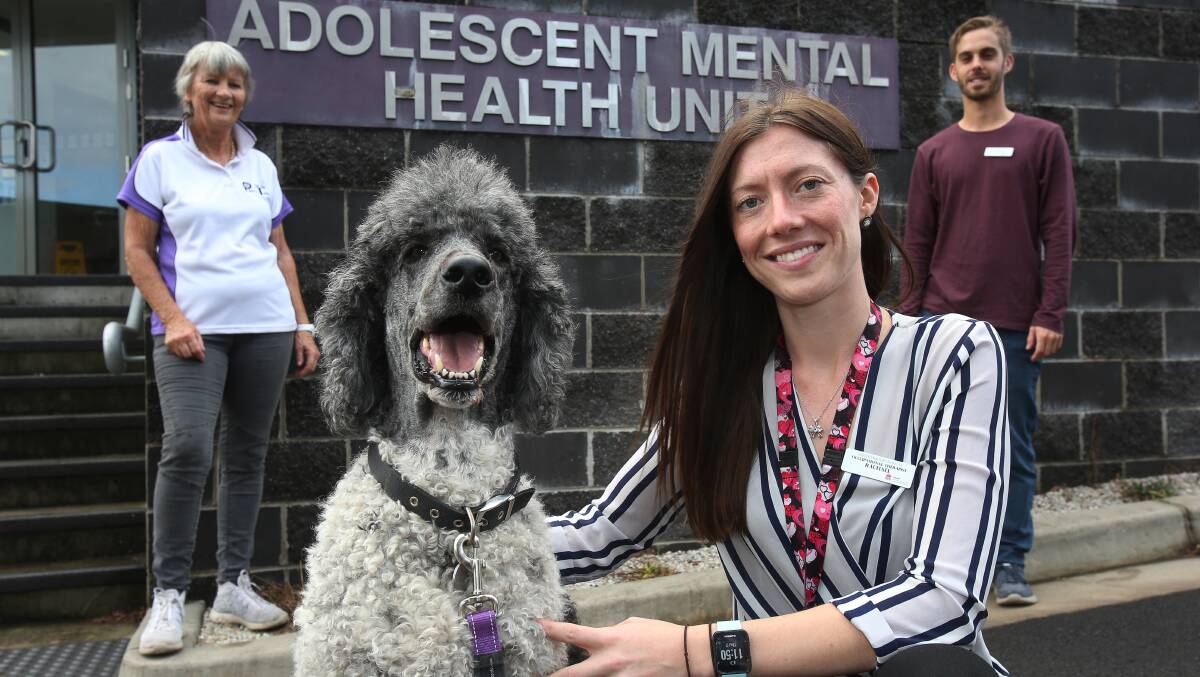
Man’s best friend is proving good medicine for the teenagers at Shellharbour Hospital’s adolescent mental health unit.
Subscribe now for unlimited access.
or signup to continue reading
A pet therapy program has been in place for 12 months now, and young patients are reporting that the weekly visit is giving them a lift.
Occupational therapist Rachael Wade said the program was run in conjunction with PAWS Pet Therapy, a not-for-profit organisation that trains volunteers and dogs to provide specialist therapy.
“We introduced the program to improve and create a positive culture within the unit,” Ms Wade said.
“Lots of the young people who come to the unit talk about their own pets, and how much they miss them. Pets are part of their network, like their family.
“We knew there was lots of research to show that pet therapy leads to good outcomes and when we spoke to our young people they were very excited about it.”
The six-bedroom inpatient unit deals with those aged 12 to 17 with complex mental health issues. These include anxiety, mood disorders, acute stress reactions and emotion dysregulation.
“We did an evaluation of the program and patients said it had a beneficial effect on their mental health,” Ms Wade said.
“They reported a decrease in emotions like sadness, anger and fear and an increase in emotions like joy and happiness.”
The weekly sessions are structured to cater for the individual needs of patients at the unit.
“It depends on the mix of young people at the time,” Ms Wade said.
“So if we’re looking to get people outside and increase their physical activity then we might take the dog for a walk, and give young people the opportunity to take responsibility for holding the leash.
“Physical and mental health have a very strong correlation.”
The session may also provide an opportunity for staff to educate the teens on matters like self-care or compassion for others.
“We can use grooming sessions with the dog to encourage conversations around things like self-care or healthy eating for instance,” she said.
“It’s a non-confronting way to have those discussions with adolescents.”
The sessions also helped with socialisation and engagement and with self-soothing, said Ms Wade.
“It helps them feel calm, and takes their mind off things,” she said. “It gives them something to look forward to during the week.”
The program also helped to break down barriers between staff and patients.
“It promotes collaboration, and also reduces those restrictive practices like seclusion and restraint,” Ms Wade added.

